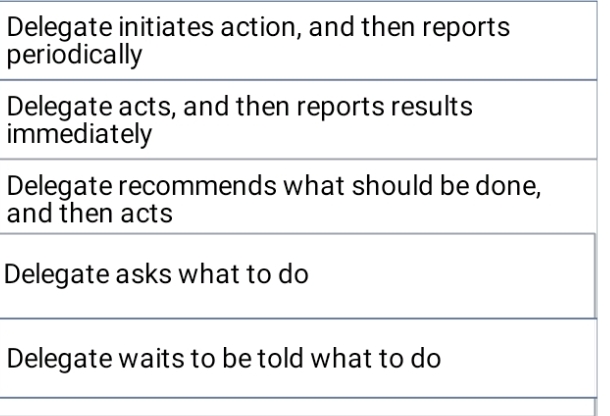To Whom Should You Delegate?
Once you have decided to delegate a task, think about the possible candidates for accepting the task.
Things to think about include:
What experience, knowledge, skills, and attitude does the person already have?
What training or assistance might they need?
Do you have the time and resources to provide any training needed?
What is the individual’s preferred work style? Do they do well on their own or do they require more support and motivation? How independent are they?
What does they want from their job?
What are their long-term goals and interest, and how do these align with the work proposed?
What is the current workload of this person? Does the person have time to take on more work?
Will you delegating this task require reshuffling of other responsibilities and workloads?
When you first start to delegate to someone, you may notice that they take longer than you do to complete tasks. This is because you are an expert in the field and the person you have delegated to is still learning. Be patient: if you have chosen the right person to delegate to, and you are delegating correctly, you will find that they quickly become competent and reliable. Also, try to delegate to the lowest possible organizational level. The people who are closest to the work are best suited for the task because they have the most intimate knowledge of the detail of everyday work. This also increases workplace efficiency, and helps contribute to their personal development.
How Should You Delegate?
Delegation doesn’t have to be all or nothing. There are several different levels of delegation, each with different levels of delegate independence and delegator supervision.
The Spheres of Independence

People often move throughout these spheres during the delegation process. Your goal should be to get the delegate to one of the outer three spheres, depending on the task being performed. Make sure you match the amount of responsibility with the amount of authority. Understand that you can delegate some responsibility, but you can’t delegate away ultimate accountability. The buck stops with you!
